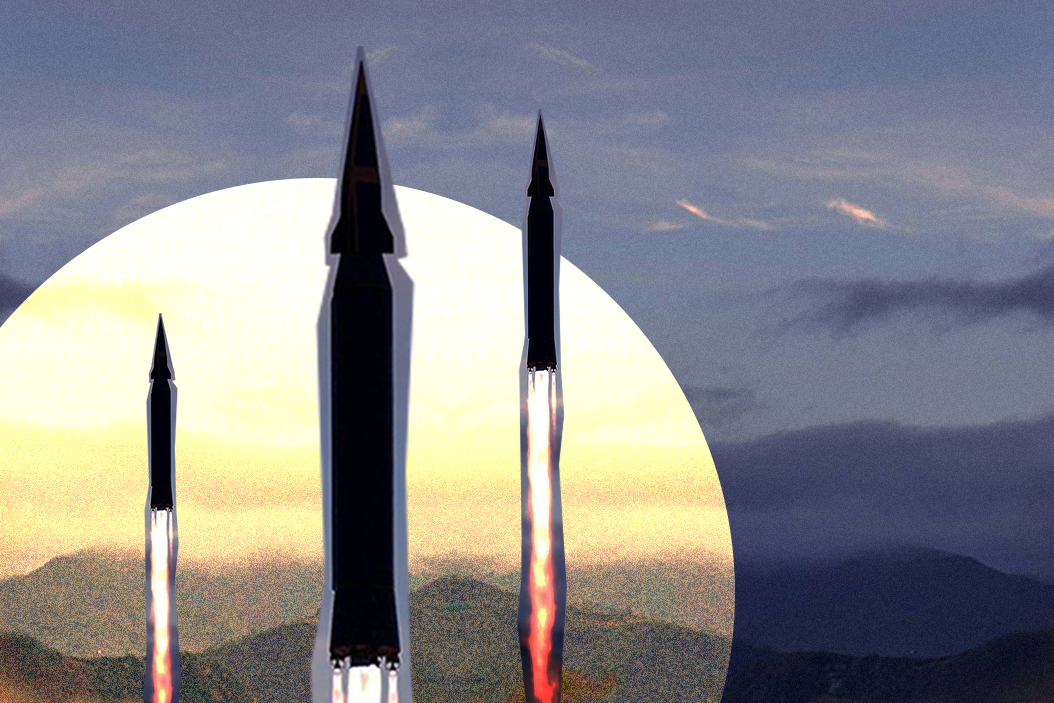Over the past few months, US officials have become increasingly alarmed about a new type of killing machines called "hypersonic weapons."
The top US General, Mark Milley, said that China's successful test of an advanced hypersonic weapon earlier this year was "very close" to a "Sputnik moment" – referring to the Soviet Union's surprise launch of the world's first artificial satellite in 1957, which raised fears that the US was lagging behind a formidable technological rival.
Should you be worried? Yes, but perhaps not for the reasons you might think.
First, what are hypersonic weapons? When people talk about hypersonic weapons today, they're generally referring to two things:
Jet-powered missiles that fly at extreme speeds. These missiles travel very close to the surface of the earth. Most of today's cruise missiles do this too, but they do not travel faster than sound. Hypersonics, by contrast, travel at a minimum of five times the speed of sound.
Hypersonic glide vehicles, which have no engines of their own. They are carried high up into the atmosphere by another rocket and then released to glide, like hypersonic paper airplanes, until they strike their targets.
These weapons can be armed with nuclear warheads, and their main, terrifying new feature – besides their speed – is their maneuverability.
Unlike most of today's missiles, which travel along a predictable trajectory after launch, hypersonics can zig and zag. In baseball terms, it's the difference between a long throw from an outfielder, which you can line up and catch, and a knuckleball that dances through the atmosphere like a butterfly before destroying your aircraft carrier.
So far, only three countries have advanced hypersonic weapons programs. China and Russia have successfully tested, and likely deployed, hypersonics, some of which are nuclear capable. They say that these programs are a direct response to US missile defense systems, which Washington has been building for more than twenty years. The United States itself is also developing hypersonic missiles, with a focus on non-nuclear ones which actually have to be more precise. So far the US has deployed nothing. India, France, Australia, Germany, and Japan all have earlier stage hypersonic programs as well.
Why are people worried about these weapons? Some have pointed out that hypersonic weapons can easily evade missile defense systems. This is because their flight patterns are more unpredictable, and because their low altitudes make them harder to detect than ICBMs, which trace big high ballistic arcs that can be seen from thousands of miles away .
But the truth is that a missile defense system like the US' already fails 6 out of 10 times even in highly controlled tests with ICBMs. In other words, the existing Russian and Chinese arsenals of ICBMs are more than sufficient to overwhelm any missile defenses. Still, the US insistence on continuing to build missile defense capabilities is one reason why the Russians and Chinese are so keen to develop evasive new hypersonic weapons in the first place.
As a result, nuclear deterrence is still based on the idea of mutually assured destruction. "We can't stop you from hitting us. But we can hit you back and destroy you, so don't do it."
There are, however, two big worries with hypersonics.
They make catastrophic miscalculations much more likely. Because they arrive so much faster and more unpredictable than conventional ballistic or cruise missiles, they give officials and generals less time to assess a threat and decide on an appropriate response. That not only increases the stakes – and risks – in the heat of the moment, it also makes wary countries more likely to strike first so that they don't get caught off-guard by a hypersonic attack, nuclear or not.
Also, there are no global rules for hypersonic weapons. Current arms control treaties have nothing to say about them. Like other frontier military technologies – such as artificial intelligence weapons or cyberattacks – there are no limits on testing or deployment, no understandings about proportional retaliation, and no mechanisms in place to exchange information about who has what weapons and where.
The New START pact between Russia and the US, for example, is the last significant strategic arms control agreement in the world: it doesn't cover hypersonics. Even if it did, China has not signed it.
Looking back. The world lived through decades of duck-and-cover fear before exploring sensible nuclear arms control deals, and even that took a near-miss like the Cuban missile crisis.
Looking ahead. We are still only in the earliest days of the hypersonic weapons era. Will it take a new missile crisis to get world leaders to make rules for these things?
More For You
Most Popular
Think you know what's going on around the world? Here's your chance to prove it.
Conservative businessman Nasry Asfura has taken office as president of Honduras after winning a razor-thin election that his opponent still disputes.
